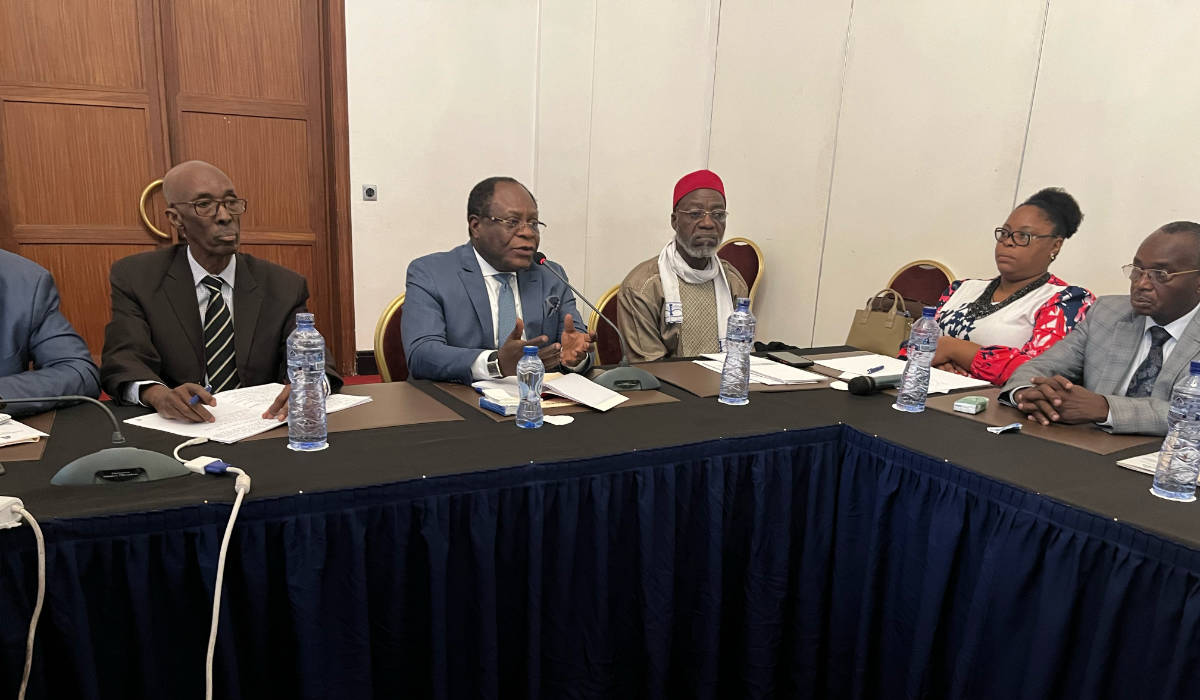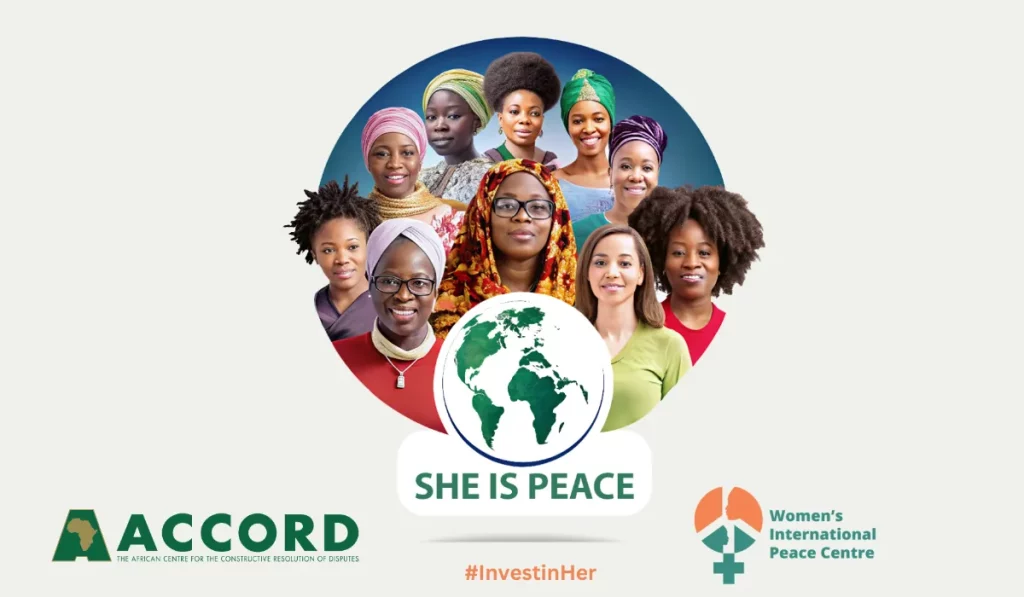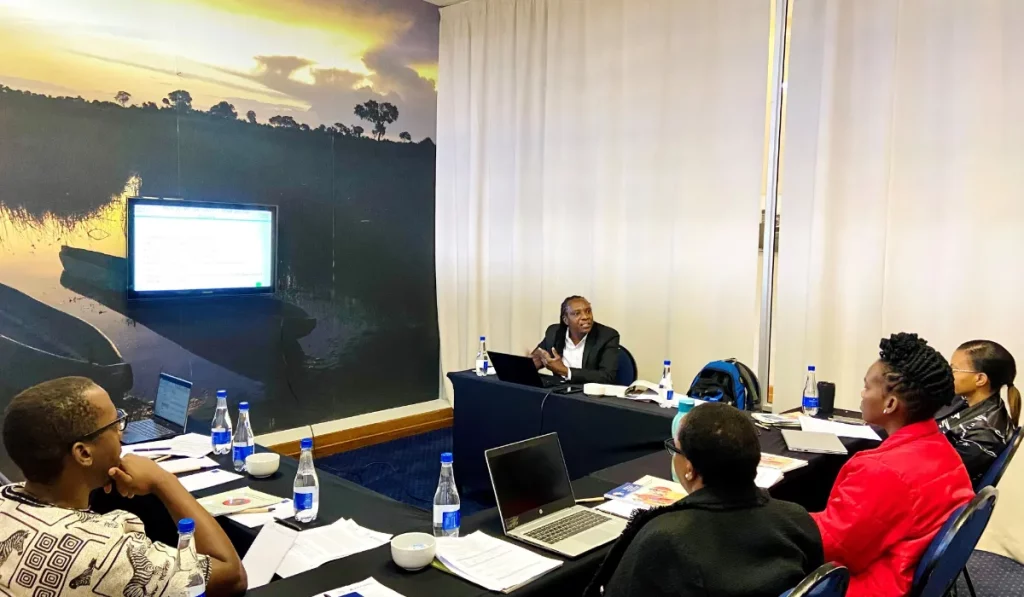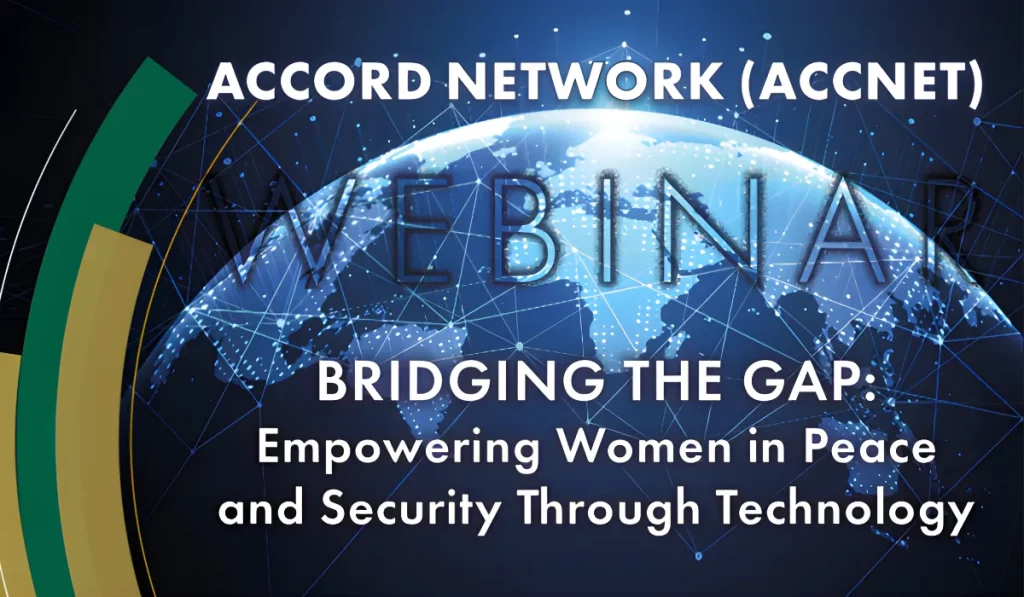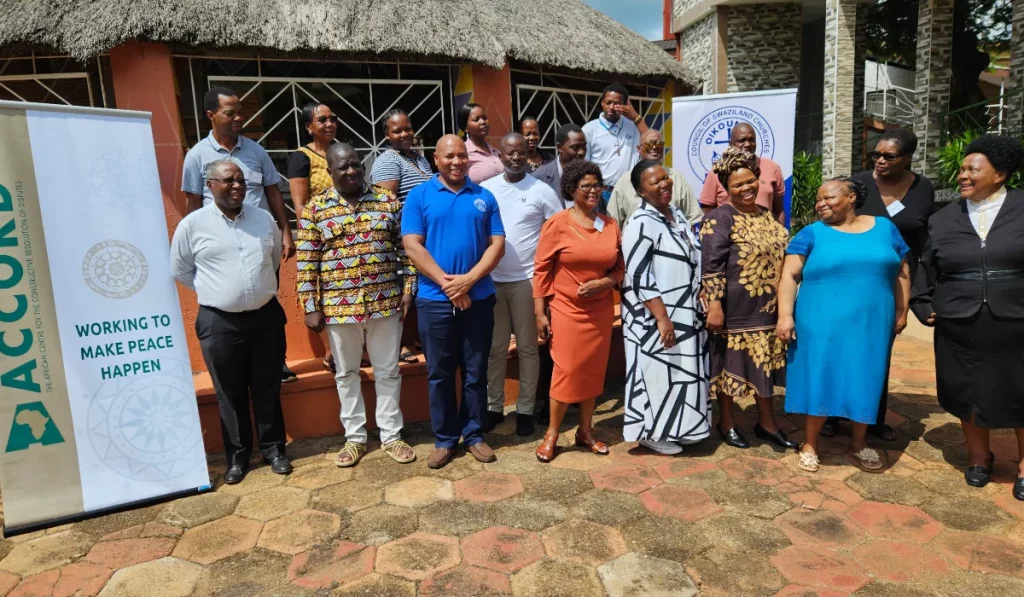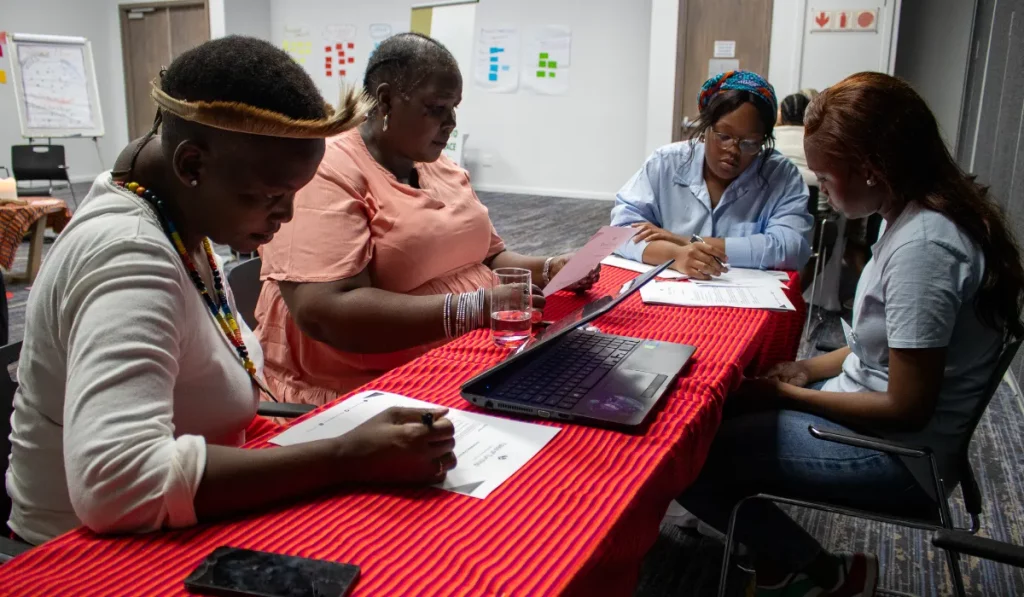From 21 to 23 August 2023, ACCORD hosted a conflict management training for religious and traditional leaders in the Democratic Republic of the Congo (DRC). The three-day training took place in Kinshasa and was co-organised with Religions for Peace DRC. Leaders from across the country, representing a variety of faiths and traditional constituencies, were brought together to explore avenues to address the country’s many challenges.
The training, led by H.E. Sébastien Ntahuga, focused on the roles traditional and religious leaders could play in conducting and supporting sustained dialogue processes in the DRC. The programme incorporated discussions on ways in which women and youth could contribute to these processes; and the participants were given an opportunity to design a conflict management process, based on a case study that integrates various stakeholders. With the country gearing up for national elections in 2023, the training curriculum also unpacked how elections may function as a conflict trigger in the DRC. Mr Didi Manara, 2nd Vice President of the National Independent Electoral Commission joined the group to discuss the election process in the DRC.
ACCORD has worked with a number of religious and traditional organisations to bolster local and national capacities for peace. Such institutions provide powerful mechanisms for intervention in conflict. Religious and traditional leaders tend to occupy positions of high status and respect in their communities and are often seen as moral authorities, particularly when advocating for peace. The community and sense of belonging provided by such institutions can help combat the sense of marginalisation that often contributes to radicalisation. Such communities also provide avenues for organisation and activism for human rights and in support of the provision of basic services, giving citizens a constructive means of holding governments to account, and even alternative governance structures, which further limits the potential for violence.
This training aligns with ACCORD’s continued efforts to enhance the roles played by multidimensional stakeholders in addressing complex conflicts. As well as engaging with religious leaders inter alia the DRC, Mozambique and the Horn of Africa, ACCORD has ongoing programmes to reinforce the capacity of stakeholders such as local government officials, traditional authorities, community leaders, women and youth. All of which are crucial constituencies in building sustainable peace and addressing continental challenges.

